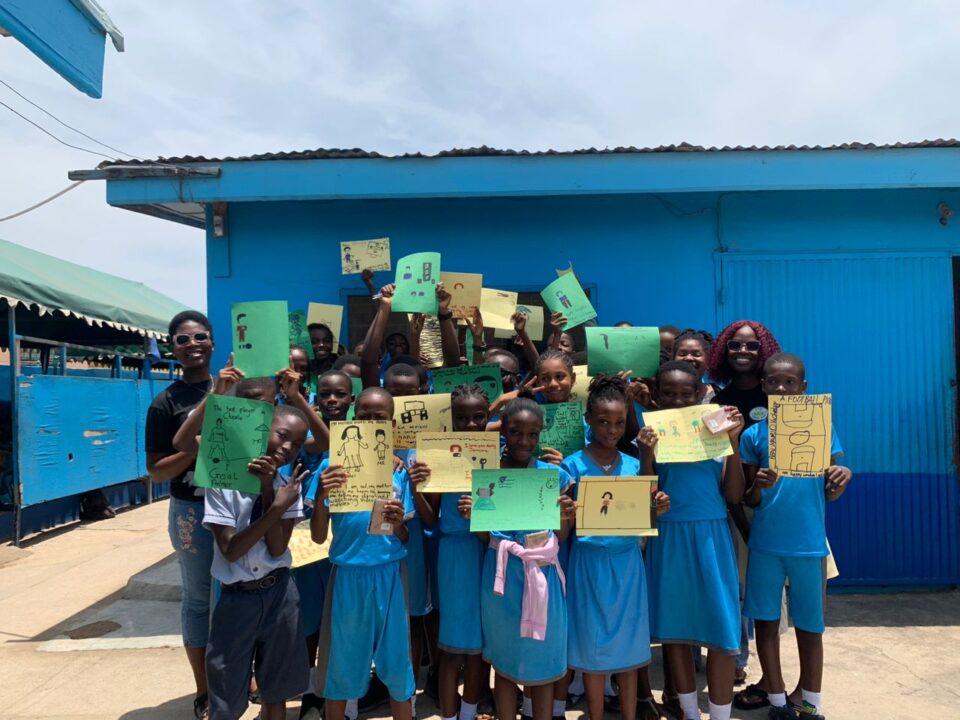
My Data Our Health
December 23, 2024
School Outreach to Raise Awareness about Mental Health and Wellbeing
March 24, 2025In a proactive effort to combat the persistent issues of child labour and trafficking, Curious Minds recently held community durbars and outside broadcasts in Chorkor, Azizanya, and Tema Newtown. These events aimed to raise awareness and galvanise community action toward eradicating these troubling practices.
The gatherings facilitated crucial discussions by bringing together a diverse group of participants, including assembly members, school pupils, community chiefs, religious leaders, ROC members, Family/Clan heads, and a District-wide anti-child labour and trafficking network. David Sackey, a representative from the Fisheries Commission, kicked off the outside broadcast on Obonu FM, urging parents to heed the insights of key resource persons present at the event.
The broadcast delved into the fundamental role of the extended family in addressing issues of child labour and trafficking. Many attendees reflected on the importance of family support and involvement, with some clarifying definitions of nuclear and extended family. Honourable Theophilus, the local Assembly Member, emphasized the high poverty rates along the coast, noting that families often gather only for significant events, neglecting their responsibilities towards their children’s education and well-being.

Madam Georgina Wilfred, Circuit Supervisor for AMA schools, highlighted a disturbing trend: perpetrators of child labour often target impoverished families, shedding light on the necessity for parents to ensure their children’s basic needs are met. “Financial grounding is crucial to provide access to food, clothing, shelter, and eventually education,” she stressed.
The community durbar featured a dramatic presentation from the ChaCLaT ambassadors, demonstrating the imperative for families to care for their children and warning against the dangers of entrusting them to others, which can lead to trafficking or abuse.
In Azizanya, discussions echoed similar themes, with Mrs. Hammond, Director of CHRAJ, articulating the constitutional responsibilities of families. She affirmed that fulfilling a child’s basic needs, such as food, shelter, health, and education, protects them from legal troubles related to neglect. Furthermore, she emphasized that education equips children with the knowledge and skills necessary for self-sustenance.
The seriousness of violating child rights was emphasised by legal implications, including potential imprisonment and fines for offenders involved in child labour and trafficking.
At Tema, community leaders reflected on the historical significance of extended family roles and shared experiences concerning these issues. The impact of dramatizations by the ChaCLaT ambassadors was evident, as the performances highlighted how families can effectively combat child labour and trafficking.
Through these collaborative efforts, the community aims to foster a proactive approach to safeguarding the rights and futures of its children, creating a united front against child exploitation in all its forms.



